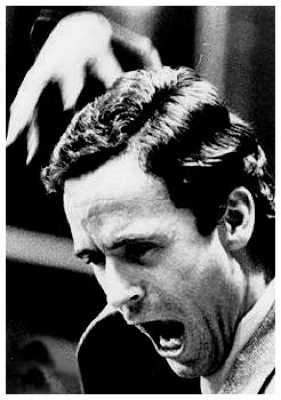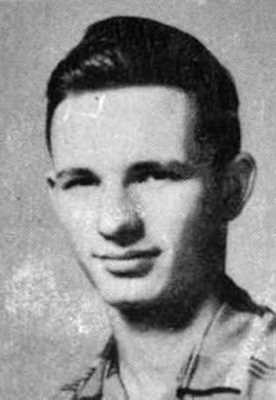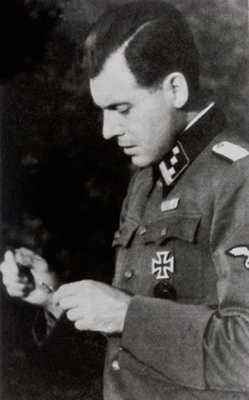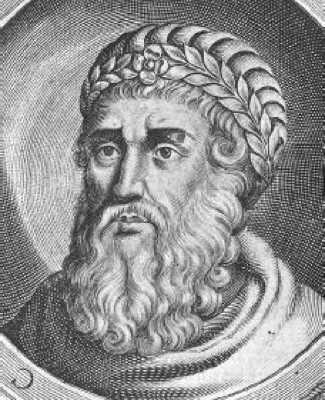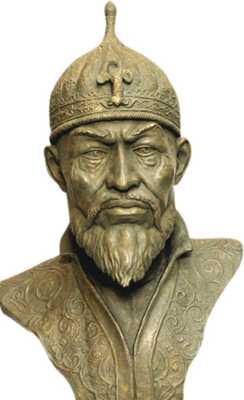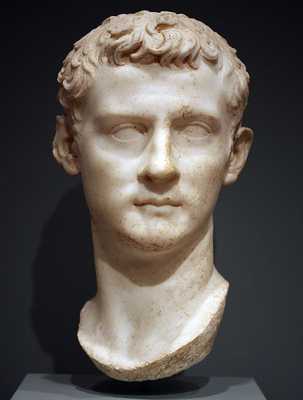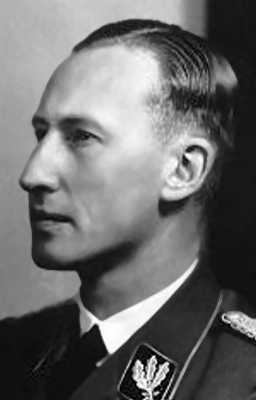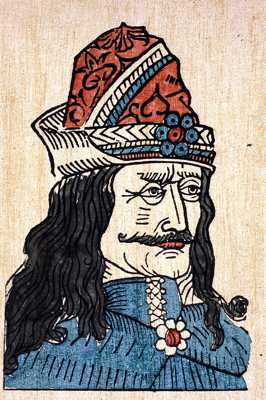Several of the entries on this list have made previous lists, and so detailed accounts of what makes them infamous need not be lengthy. Bundy’s crimes are well known on the surface, but what has routinely escaped the public mind is that after he raped, brutally beat, and strangled women to death – all chosen completely at random – he then returned to the scenes of his crimes and had sex over and over with the corpses until putrefaction forced him to stop. This takes the better part of an entire day. One of the few times he did not engage in necrophilia was during the early morning hours of January 15, 1978, when he found a broken lock on the back door of the Chi Omega sorority house off the campus of Florida State University. The fact that he found this broken lock, which was recorded as broken and due to be replaced, indicates not that he knew it was there, but that he was on the prowl for any place where there were a lot of women. Women were toys to him. Targets. He went in and bludgeoned four women, two of them to death, the other three so severely that they suffered broken jaws, missing teeth, bite marks on their buttocks, nipples ripped off, concussions and dislocated shoulders. He rammed a bottle into one woman’s vagina. He did not rape any of them, but left the building, probably when the commotion woke others, and broke into the apartment of another female FSU student 8 blocks away, raped her, and beat her so severely that he fractured her skull in five places. This permanently ended her ballet career. Bundy was a wild animal, knew it, and felt no remorse about it. He never stopped lying about his crimes right to the end, despite airtight evidence to the contrary. This pathological desire to deceive indicates that he had no regrets except that he had been caught. He confessed several times in prison interviews up to the date of his execution, 7:16 AM, January 24, 1989, but during his last walk, he called loudly to all those within earshot that his confessions were only desperation, and that he had not done anything of which he had been convicted. The two murders cited above are only 2 of at least 30 women he beat, raped and tortured, for the dual purpose of enjoying himself and controlling all he could of society.
Whereas Bundy exclusively targeted women, Corll exclusively targeted teenaged boys. He worked from 1965 to 1968 in his family’s Houston candy company, giving him his horrid nickname, “The Candy Man.” He plied many of his victims with free candy, and also free alcohol and marijuana. His rampage lasted from 1970 to 1973, during which time he befriended two wayward accomplices, David Brooks and Elmer Henley. For those 3+ years in Houston, TX, Corll sought out and murdered 28 boys aged 13 to 20, by offering them rides in his van to go smoke weed or drink. Once in his apartment, he, Brooks and/or Henley would drug the boy till he passed out, then tie him to a plywood board Corll made for the sole purpose of torturing these boys. He raped them, beat them savagely, encouraged his accomplices to do the same, even though they were never enthusiastic about it, and sexually assaulted them by a variety of methods. Corll especially enjoyed chewing the victims’ genitals to mush. He castrated several. Even more than that, had glass rods inserted up their urethras and smashed with hammers. Corll drew out their torture as long as he could, sometimes for 3 days, before strangling them or shooting them with a .22 pistol. They were buried in various places, including a boat shed and Bolivar Peninsula. Corll was not caught by the police, who were frantically trying to pattern the explosion of missing persons throughout the city. Corll did not seem to have a pattern, however, picking boys up wherever he saw them. Elmer Henley claimed later that he could no longer stomach what Corll did, a sentiment shared by Brooks, and when Henley attempted to get himself a life by finding a girlfriend, Rhonda Williams, Corll responded with irate fury, threatening to kill her and Henley. Henley managed to pacify him by stating that Williams would only stay until her father sobered up. This seemed to calm Corll, who was looking forward to torturing and killing his next victim, Timothy Kerley, who was already in Corll’s home, drinking and smoking. When all three teenagers passed out, they woke up, handcuffed. Henley saved himself by promising to join in the torture. Corll agreed, and forced Henley to rape his prospective girlfriend, while Corll raped and bit Kerley. Henley could not bring himself to do so, and managed to get Corll’s pistol from him. He shot Corll to death while he was in the process of raping Kerley. They then called the police and the Houston Mass Murders came to light, the worst serial killing spree in national history at that point.
You may not know who he is, but if you saw his prison cell in Wakefield, West Yorkshire, England, you would instantly recognize that he was Thomas Harris’ primary inspiration for Dr. Hannibal Lecter. As described in the novels and in the Anthony Hopkins films, the cell is solitary confinement, underground, through multiple, locked checkpoints with armed guards, and the Prison officials take such care to secure Maudsley because he is, in reality, no less the monster that Hannibal Lecter is. He is not as smart or well educated as the character based on him, but he is the pristine definition of a pure sociopath. He has absolutely zero interest in either the sanctity of human life, or the rules of any society. He does not kill for enjoyment, at least as determined by his many psychological evaluators. He kills because he feels it is his duty. The very presence of another person obliges Maudsley to desire to kill that person, and to try if he thinks he can succeed. Although it certainly doesn’t justify what he did, Maudsley’s sociopathy stems from being beaten horribly by both parents throughout most of his childhood. He claims to have been raped by his father, before social services rescued him. By then it was too late. He was incarcerated for strangling a man who attempted to pick him up for sex, then showed him pictures of children the man had sexually abused. While in Broadmoor Hospital for the Criminally Insane, surrounded by pedophiles, he decided to take it on himself to kill as many of them as he could. He and another inmate captured one pedophile and locked themselves in his cell, where they tortured him for an hour, breaking all his arms and legs, castrating him, and finally smashing his skull open, killing him. Maudsley then got the nickname “Hannibal the Cannibal” when he ate some of the prisoner’s brain with a spoon. This incident got him transferred to Wakefield, “the Monster Mansion,” where all the very worst, most violent prisoners in the UK are held. One day in 1978, he lured a rapist named Salney Darwood into his cell, where he stabbed and strangled him. He hid the body and attempted to repeat his tactic, but no other inmate wanted to enter his cell. Several of them testified that they “saw death in his eyes.” Maudsley would not be deterred, walking around the prison until he found a random prisoner alone, stabbed him and bashed his head against a wall, then walked into the guardroom and gave them the shank he used. “Your next roll will be two men short,” he said. The guards stated that he smiled and laughed a little as he walked out. Since then, he has been kept in his “Silence of the Lambs” cell. Guards, and even the other inmates, are terrified of him escaping. Once, in 1984, when a new guard attempted to open his cell, Maudsley snickered and said, “Look, if you come in here, I’m going to have to kill you. It’s not personal. I don’t hate you and I’m not angry. It’s just something I’ll have to do.” The guard quit his job and visited a psychiatrist. The prison’s psychiatric experts have labeled Maudsley “100% psychopath. He only regards the rules of society because, in his case, those rules are made of brick.”
Unfortunately, the entries will only get worse. Mengele, like most of the entries to come, not only had no regard for the rules of a society, or the sanctity of human life, he had no law enforcement to elude. He was nicknamed “the Angel of Death” and “the White Angel” by the Jews who last saw him, wearing a white lab coat and directing tens of thousands to their deaths in the Auschwitz gas chambers, while many others were directed to the work camp. Mengele used Nazi rule and state-enforced oppression of Jews and other “undesirables” to satisfy a patently sadistic, perverse bloodlust. He was morbidly interested in identical twins, and wanted to see if hurting one would cause the other to hurt (it doesn’t, at least not physically). He oversaw, and personally engaged in, the torture and murder of thousands of men, women and children, all under the excuse of medical research. Auschwitz survivor, Alex Dekel, stated firmly that Mengele was not even attempting to study medicine with any of his disgusting cruelty. The haphazard techniques and methods he employed indicate that he just enjoyed the power he had over people, enjoyed hurting them, and felt more like God every day, as the War progressed. He supervised the amputation of thousands of limbs, injected children’s eyes with caustic chemicals to try to change their color, and personally performed vivisections on numerous victims, eviscerating, castrating, skinning them, and cutting out their organs in various orders to see how long they would live without this one or that one. He never once used anesthesia on any of his victims, and the excuse was always the same: the anesthesia was needed by German soldiers. Mengele deliberately broke children’s legs, let them heal, then broke them again, and so on, to see how many times a bone could be broken before it would not heal. He escaped Europe in 1949, under a false identity and lived in obscurity in Argentina, a hunted man until his death by drowning, from a stroke, while swimming in the ocean on February 7, 1979. He proved that he was not sorry for anything he had done when he wrote a letter to an acquaintance in Argentina, in which he stated his disgust with Albert Speer for expressing remorse over the Holocaust.
The Bible is not the only literature we have of Herod’s crimes. He gave himself the nickname “the Great.” The Bible gives details of his life and character, as does Titus Flavius Josephus. Both agree that he slaughtered thousands of people at whims, whenever he felt his rule threatened. It wasn’t even his rule, really, since he was king of Judea while Judea was a Roman province. He answered to the Roman Emperor. When his councilors informed him, circa 9-4 BC, of a Jewish prophecy of a young male child being born around Bethlehem who would take away Herod’s power, Herod responded matter-of-factly by massacring all the male children 2 years old and younger throughout the region around Bethlehem. The Bible states that Jesus, 2 years old or younger, was saved by his parents through divine intervention, and they fled to Egypt until after Herod died. Josephus details more of his utter immorality. As he was dying of old age, Herod became more and more paranoid of everything, afraid of dying and losing all his power. He knew that all of Judea hated him passionately, so to force Judea to mourn after his death, he invited thousands of rabbis to Jerusalem under some pretense, then had them taken captive. Upon his death, they were to be slaughtered. When he died, his sister Salome (not the Salome who had John the Baptist beheaded) and his son Archilaus contravened this order and set the rabbis free, fearing that killing them would be “more than a little impolitic.” But God got Herod back, if you believe in God. The Bible states that his death was due to extraordinarily vile diseases, and Josephus corroborates this. He suffered from chronic nephritis throughout his life, complicated by diabetes from obesity, Fournier’s gangrene, which causes the entire groin area to rot, and scabies, also called “the Seven Year Itch.” The scabies produced grotesque ballooning and worms in his scrotum, and a nauseating stench from his genitals. He most likely died of kidney failure.
Western history remembers him best as “Tamerlane.” This is an Anglicization of “Timur-e-Lang,” or “Timur the Lame.” He suffered an injury to his left foot in battle which never properly healed. He intended to restore and expand the Mongol Empire famously founded over a hundred years before by Ghengis Khan. Timur invaded from present Uzbekistan in all directions, and everywhere he conquered, entire regions of inhabitants were murdered. All he cared about was conquering people, taking everything they owned, and subjugating them. Isfahan, Iran, surrendered without a fight in view of his massive approaching army in 1387, and he treated them mercifully, until his tax collectors started collecting impossibly high tax revenue, whereupon they were killed in the streets. When Timur heard this, he ordered his army to about-face, march on the city, and kill every single living thing in it, even the rats. Birds were shot out of the sky by his archers. The people, men, women and children were beheaded, to a total of 70,000 in just over two days of slaughter. He then ordered their heads piled up as 28 giant towers in the grassy hills around the city, each tower consisting of about 1,500 heads. In 1398, Timur invaded northern India, massacring whole cities of Hindu people in every direction. His only real motive for the invasion was India’s vast gold and gem treasuries. He was opposed in December of that year by Sultan Mehmud, who sent 120 war elephants against him. Timur forced the elephants to panic back into their own lines by stacking wood on the backs of all his camels and setting the camels on fire, then goading them toward the charging elephants. The camels bellowed in agony and the fiery sight did the trick. The elephants turned around and fled. Timur then entered the capital of Delhi, pillaged it, burned it to the ground, and executed 100,000 innocent civilians in one day, by having them beheaded or speared. Timur claimed in his memoirs that he wanted to restrain his army from killing all these people, but could not, and besides this, he finally decided that he should not restrain his men, because it was the will of Allah that the residents of Delhi had to die. He made it a point throughout his career as conqueror to wipe the Christian religion off the face of the earth, and thus, Christian areas, such as Armenia and Georgia, were depopulated. 60,000 civilians in Armenia and Georgia were spared to become slaves, while every major city in both countries was sacked and destroyed, and every inhabitant in it beheaded. The total is estimated to have been one million killed. The total number of people killed during his career is a broad estimate of 17 million. His motive was a desire to own the entire world for himself. He died in Otrar, near Karatau, Kazakhstan, on February 17, 1405, after contracting bubonic plague. He was planning an imminent invasion of China.
Modern history typically refers to him as Caligula, which means, “Little Boots.” He topped another of this lister’s lists, so his ridiculously lurid exploits will be kept to a minimum. During his 4-year reign as Emperor of Rome, he began the construction of two aqueducts, which were completed under his successor, Claudius. His reign began rather well. Everyone throughout Italy loved him, especially because they hated Tiberius, his predecessor, and Caligula capitalized on this fame and love by thoroughly depleting the treasury, giving bonuses and huge pensions to soldiers and the Praetorian Guard to buy their loyalty. A number of theories has been put forth to explain why his rule degenerated so quickly into outrageous madness. One of these is that, during a serious fever, he suffered brain damage, which can happen, and afterward, was no longer the same person. But given his preponderance, before this fever, for exercising his power to do anything he felt like doing, even before his ascent to the throne, it is more likely that when he depleted Rome’s coffers, he saw no problem with killing those he hated, then seizing their estates for the good of the Republic. This was commonly done, and it is called “proscription.” Whenever a new authority arises, he runs down the names of enemies on his “hit list,” eliminating them by murder or exile, under the pretense that they were dangerous to society and their goods might as well be confiscated. Once he saw that he could get away with this, Caligula felt like he owed it to himself to live a little. Aside from his perverse hypersexuality, including public incest with his sisters at banquets, he relished watching people suffer. Who or why did not matter to him, but anyone who offended him in any way was as good as dead. And their deaths were almost never easy. His favorite form of torture was sawing, in which the victim is turned upside down, so the blood rushes to the brain and prevents the victim from passing out until the very end. Then he or she is sawed in half from the groin down to the breast, filleting the spine and spinal cord. Most victims were unable to pass out until the saw reached their navels. Some lasted even longer. Caligula would sit on his throne snickering, and clap his hands while this went on before him. It was done in private, of course, because if the public had seen such butchery, he would have had an insurrection to deal with. He sometimes forced his favorite sister, Drusilla, to perform fellatio on him after he watched torture sessions. Nevertheless, he delighted in watching the gladiatorial games, and his favorite event was the lions versus unarmed convicts. One day at the Circus Maximus, this event was next on the list, but the gladiator schools ran out of gladiators, and the prisons ran out of convicts. Caligula stood up and gleefully “decreed” that the first 5 rows of spectators be dragged into the arena. His Germanic guards, fanatically loyal, complied and hundreds of spectators were mauled to death. To explain this particular act to the Senate, when they asked if he was afraid the public might come to hate him and start a riot, he replied, “Neque timendum est. Sit oderint me, sum timent me.” “I do not fear anything. Let them hate me, provided that they fear me.” He indulged his sadism with a variety of tortures, almost as if he studied them to see which caused the most pain. Most of the time, he visited his bloodlust on criminals, so the public would not be too up in arms against him. Some were skinned alive, always upside down to prolong the agony; some were roasted to death, not burned, over fires. Others, accused of whatever it took to deserve execution, were forced to watch their entire families be strangled. One man was beaten every day with heavy chains, and care was taken that he was not killed, until the stench of his gangrenous brain offended the Emperor, who called for him to be thrown into a fire alive. And he personally chewed up the testicles of some victims. But the Praetorian Guard, knowing full well that this was going on, was growing ever more tired of his disgusting abuse of office. He was doing nothing for the good of Rome, only himself, preferably at the greatest expense to all but him. He coveted the whole world’s hatred of him. And he got it. On January 24, 41 AD, while leaving the Circus Maximus, having just watched his fill of the games, he was surrounded by Praetorian Guardsmen, led by Cassius Chaerea, whom Caligula enjoyed insulting because of his high-pitched voice. Cassius stabbed him first, and he was beset on all sides, stabbed 30 times and died in a pool of blood. His Germanic guards ran to his aid but were too late, and they took their fury out on the innocent civilians who had crowded around, the Praetorian assassins having fled.
He was General of the Police, chief of the Reich Main Security Office (including the SD, Gestapo, and Kripo) and Deputy Reich-Protector of Bohemia and Moravia. He was personally appointed to all these posts by Adolf Hitler, and he was Hitler’s favorite member of the Nazi Party. Reinhard Heydrich committed such rampaging violence against Jews during the Holocaust that he didn’t even survive WWII. He was singled out for assassination by the Jewish Resistance in the Czechoslovakian area where he was in charge, because he almost “purified” the entire area, thus most closely realizing Hitler’s dream. He was the chair of the Wannsee Conference, which outlined the plan for forcibly deporting and then murdering all the Jews in Europe. He took his orders from two people only, Hitler and Heinrich Himmler, and he was one of the chief architects of the Holocaust, both in terms of methods, motives and scope. Heydrich commanded and oversaw the systematic extermination of the citizens of Czechoslovakia. He called his intent “Germanization of the Czech vermin.” On his arrival in Prague in late September 1941, he had 92 people executed in three days. Many of these were tortured first by hanging them from their wrists to trees, while their arms were behind their backs. This twists the shoulders in a way in which they will not rotate, and the weight of the body finally rips the ligaments and musculature, dislocating the arms. Some of them were then cut down and and forced to be eaten by German shepherd dogs. Heydrich did not try to sweep any of this under the rug. He always justified his actions by claiming treason or espionage or other enemy motives, but no one in the Nazi high command had any problem with his methods. Hitler and Himmler were overjoyed and admonished all other Nazi officers to follow Heydrich’s example. He kept good and public records of the numbers of dead and deported. By February of 1942, he had sent some 4,600 innocent civilians to their deaths, either executed on sight, or sent to Mauthausen Death Camp. Heydrich’s intent, as he freely and frequently admitted, was to eradicate all “non-German” presence from the Czech area.” His reign of terror was so fast-paced and determined that the Czech Resistance, based in London, England, sent two Czech soldiers trained by British Commandos to assassinate Heydrich. They succeeded, but Hitler and Himmler made the consequences horrible. Hitler intended to execute 10,000 Czechs chosen at random, but he was advised by Karl Frank that doing so would severely reduce Czech production of German war equipment. They finally decided to place the blame on a random town for harboring the assassins, and chose Lidice and Lezaky. The inhabitants of the town were summarily shot dead in the streets or sent to death camps, and the towns were burned to the ground. But the Czechs killed Heydrich.
Modern scholarship has called into question just how extensive her crimes ran. She killed at least 80 young girls, according to court records at her trial, but various testimonies of that trial place her total tally at 36-37, more than 50, 100-200, and 650+. The truth will probably never be known, because reliable records could not be made of the lower gentry class on which she preyed. Bathory knew that relatively few people would miss young girls of the low classes, at least for a time, and being a member of the nobility, she could always convince people by her very social status. This was the way things worked in feudal systems. People rarely questioned the kings and queens, and the other various ranks. In Bathory’s case, she killed so many people that the evidence against her mounted until it could not be ignored or denied. She always chose young girls to torture and kill, and her motive for beginning this horror does not come from court testimonies given by her servants, who were her accomplices. She hired these girls on temporary and permanent bases to be her personal servants in her castle, Csejte, today called Cachtice, in present Slovakia. In succeeding generations, until the 1800s, folklore claimed that Bathory drank and bathed in the girls’ blood to retain her youth. One day, the folklore goes, while a girl was brushing her hair, she accidentally pulled it, and Bathory jumped up and slapped her so hard she broke the girl’s nose. Blood spattered Bathory’s hand, and where she wiped it away, she thought her skin looked younger. So she cut the girl’s throat and drained her into a bathtub, where Bathory bathed. She repeated this hundreds of times. In reality, this is highly unlikely. Bathory had no history of such insane ideas, and her trial shed quite a bit of light on her personal history. It is much more likely, if even viler, that she killed these girls simply because she enjoyed it. And the nature of the tortures she inflicted on them indicates an extreme delight in watching others in physical agony. She would have her servants invite the girls to her castle, and once there, they were bound and taken to her dungeon. It was like something out of Edgar Allan Poe, but it was real. They suffered red-hot needles shoved under their finger and toenails; being bludgeoned in the groin with clubs; being skinned alive; disembowelment; fatal surgeries, in which Bathory burst their organs in her bare grip; beating until death; stripping them naked and chaining them outside in the castle courtyard in midwinter, then pouring cold water over them, so they froze to death as macabre sculptures; locking them in hanging cages from the dungeon ceiling and swinging the cage into spikes on the walls, until the girls were ripped to pieces. This last torture was one Bathory particularly relished, because she could stand under them and be showered by their blood while she laughed at their screams, and this may be the origin of the “bathing in blood” story. Once, when Bathory caught the flu and was bedridden for a week, she was too weak to get out of bed to torture the girls, so she had her servants bring the girls up to her bedside, where she leaned up and savagely gnawed chunks of flesh from their breasts and abdomens. This went on from 1585 to 1610, when her crimes were discovered and she was caught. The primary evidence that led to her was the eerie absence of young girls in the villages around her castle, and the repeated missing person notices and grievances of parents in these areas. Two of her accomplices were condemned to have their fingers ripped out of the knuckles with red-hot pinchers, then to be burned at the stake; one other accomplice was beheaded, then burned, and a fourth was imprisoned for life. Erszebet Bathory was walled up in the bedroom of her castle for the rest of her life, and fed through a slot in the brick. She died in 1614, aged 54. She left a letter, written to Satan, in which she besought him to send 99 cats to kill and eat King Matthias for convicting her.
History prefers to remember him by his nickname, Țepeș, the Romanian word for “Impaler.” He is guilty of crimes so orgiastically malicious that their horror is not expressible. You might consider it impossible for anyone to rank higher than any of the other entries of this list, but if the motive is the same, that of torture for sheer amusement, then in the end, ranking has to be done according to the cruelty of the tortures, and the numbers of victims. Vlad III lived from 1431 to 1476, about a hundred years before Erzsebet Bathory, in the Wallachia and Transylvania areas of central Romania. His infamous Castle Poenari, on a steep cliff in the middle of the Transylvanian Alps, would be sitting in a peacefully scenic part of the world if it weren’t for the almost Satanic history he brought to the area. During his rule, Transylvania and Wallachia became Hell on Earth. You’re sure to know at least some of what he did, particularly his preferred method of execution, which is how he got his nickname. The luckier Turkish invaders, under Mehmed II, were merely impaled through the belly or chest, from front to back, or back to front. But most of them were not lucky. Vlad thought of torture as something to study, to extract the maximum amount of pain possible from each body, while keeping the victims alive as long as possible. The standard impalement method, not invented by him, but made most indelible by him, was to sharpen one end of the stake to a dull point, not very sharp, then oil it and insert into the anus or vagina, erect the victim on it, and leave him or her to die over the course of several days, sometimes a week, as gravity pulled the body down the stake and the stake up, perforating the intestines, pushing the organs aside, and finally exiting at the mouth or collarbone. Death was typically due to general shock, and in one famous woodcut from 1499, not 25 years after his death, Vlad is depicted eating lunch in a garden decorated by hundreds of dying people impaled on stakes. This is true. The legend that he drank the blood of his victims from a goblet is probably not true, as this tends to make a person violently sick, but he did derive sadistic elation out of watching people suffer, hearing them scream and sob and beg, and then die. As a member of the nobility at war with other states and countries, especially the Ottoman Empire, the only thing anyone could do about it was try to overthrow him. But he was an expert field tactician, and an extremely capable fighter man to man. Emissaries sent by Mehmed seeking a truce, refused to take their turbans off to show respect to Vlad. To require a Muslim to remove his turban is extremely insulting. So Vlad had his men nail the emissaries’ turbans to their heads, killing them, and then sent them back to Mehmed. Everywhere Vlad invaded and conquered, he impaled the surviving soldiers and most non-combatant civilians, even infants. Anyone caught stealing in his domain was locked in a pillory, had his bare feet coated in honey, and then suffered a goat to lick the honey off. Goats have rougher tongues than cats, and the goat would lick until the soles of the feet came off. Then salt was sprinkled in the wounds and the thief was released. Most of them died soon from infection. During his war with Mehmed’s Ottomans, Vlad had a total of 30,000 to 40,000 men at his disposal, against a little less than 100,000 Ottoman Turks, but Vlad was no fool, and fought a series of masterful ambushes and skirmishes, flanking and cutting off mountain passes from the Turks. Vlad was not going to sit around and wait for Mehmed to come to him. He invaded modern Bulgaria and, near Oryahovo, which Vlad called “Rahova.” It is right on the present border between Romania and Bulgaria, and in that area, in early February 1462, Vlad invaded and killed 23,884 Turks, by his own count, among them women, children, peasant and wealthy. Most of them, he impaled. Then he burned down the entire city. Why? To provoke Mehmed, and show him what sort of a monster he was dealing with. Mehmed, who was known to be sadistic, himself, responded in fury by invading Wallachia. The two armies fought around Targoviste, Romania, where Vlad routed and killed 15,000 Turks. Mehmed was already demoralized by what he had seen, and tried to flee, but was nearly forced back by his officers. He attempted to besiege Targoviste, but instead found the city gates open and the whole city empty. On the other side of the city, his army followed the one road deeper into Romania, and the sight that greeted them was awesomely horrendous. The road was flanked for 60 miles by 20,000 Ottoman Turks and Bulgarian Muslims impaled, dead and dying and circled by clouds of vultures. The stench and plaintive moaning disgusted Mehmed, who turned with his army and left, never to return. Vlad had run out of money to pay the mercenaries in his army. He appealed to an old Hungarian friend, who promptly imprisoned him, probably out of fear for the safety of the entire country. While in prison, he relished impaling all the rats he could find. Vlad was released about 1474 and immediately attempted to start a new war. But he was assassinated on a road from Giurgiu to Bucharest, in late December or early January 1476-77. How he died is not known, but he is sure to have gone down swinging. He was beheaded before or after death, and his body was buried in a monastery. The total number of people he killed has been estimated at anywhere from 40,000 to 100,000, most of whom he impaled for his enjoyment. He is a national hero in Romania.
